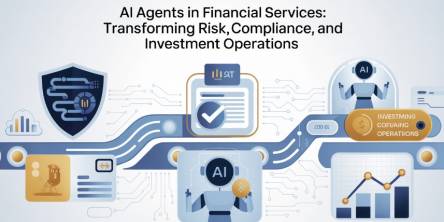Cloud Security Benefits That Reduce Cyber Risks

Introduction
The adoption of cloud technology has transformed the way businesses and individuals manage data. From small companies storing customer information to global enterprises running critical applications, the cloud has become central to daily operations. While this shift brings flexibility and scalability, it also introduces new risks. Threat actors are quick to exploit vulnerabilities, targeting cloud environments with sophisticated methods. Securing these systems is no longer optional; it is a fundamental requirement for reducing modern cyber risks.
What Is Cloud Security?
Cloud security refers to the set of policies, technologies, and practices designed to protect data, applications, and infrastructure hosted in the cloud. Unlike traditional IT security, which focuses on on-premises servers and networks, cloud security addresses distributed environments that span multiple providers, users, and devices. The shared responsibility model plays a central role in cloud protection. While cloud providers secure the infrastructure and physical hardware, customers are responsible for data, user access, and configuration settings. This partnership is what makes cloud security distinct and essential.
Key Cyber Risks in Cloud Environments
As organizations rely more heavily on cloud services, they encounter unique challenges. Data breaches remain one of the most pressing threats, often resulting from weak access controls or misconfigured settings. Malware and ransomware are also increasingly targeting cloud platforms, with attackers embedding malicious files in shared environments to spread quickly. Insider threats, whether through accidental errors or deliberate actions, further increase risks. Finally, account hijacking and credential theft are frequent issues, as stolen passwords give attackers direct access to critical resources. To better understand the key benefits of cloud security, it is important to first grasp how these threats affect business operations and why comprehensive protection measures are required.
Core Benefits of Cloud Security
Cloud security offers several advantages that directly reduce cyber risks.
Stronger Data Protection
Encryption plays a central role in ensuring data remains safe both in storage and during transmission. Secure backup and recovery processes also protect against permanent data loss in the event of ransomware or accidental deletion.
Improved Access and Identity Controls
Strong identity management ensures that only authorized users gain access. Multi-factor authentication is now a standard practice, while role-based access ensures sensitive information is not overly exposed.
Continuous Threat Monitoring
Real-time monitoring powered by analytics and artificial intelligence enables faster detection of unusual activity. This significantly reduces response time and minimizes potential damage.
Scalability and Flexibility in Defense
Cloud-native defenses scale with business growth, ensuring protection is consistent across multiple regions, branches, and even hybrid or multi-cloud systems.
How Cloud Security Reduces Cyber Risks
The most visible impact of cloud security lies in its ability to prevent costly downtime and financial loss. By addressing vulnerabilities proactively, organizations avoid disruptions caused by ransomware and malware. Strong cloud protection also mitigates risks from human error, such as misconfigured access settings, which have caused numerous breaches in recent years. Beyond technical defense, cloud security supports regulatory compliance with frameworks like GDPR, HIPAA, and PCI DSS. By demonstrating security readiness, businesses also reinforce customer trust and loyalty.
Business Benefits Beyond Security
Adopting cloud security not only defends against cyber threats but also streamlines IT operations. Centralized tools reduce complexity, making it easier for teams to manage security across distributed systems. Cost efficiency is another key advantage, as organizations replace multiple legacy tools with integrated cloud-based solutions. Most importantly, strong cloud security enables safe digital transformation and remote work strategies, allowing enterprises to innovate without fear of compromise.
Real-World Applications of Cloud Security
The finance sector uses cloud security to safeguard online transactions and prevent fraud, ensuring compliance with strict industry regulations. Healthcare organizations rely on secure cloud platforms to protect patient records and support telehealth initiatives. Retailers depend on cloud security to secure e-commerce platforms and protect sensitive customer information. In manufacturing, connected devices and operational technologies benefit from cloud-enabled defenses that prevent disruption to production lines.
Best Practices for Maximizing Cloud Security Benefits
Organizations can maximize cloud security benefits by adopting proactive strategies. Regular risk assessments and penetration testing help identify weaknesses before attackers exploit them. Zero Trust principles further enhance protection by ensuring continuous verification of every access request. Employee awareness remains critical, as phishing and social engineering remain leading attack vectors. Finally, partnering with trusted cloud vendors and managed security providers ensures ongoing expertise and support. For example, resources from the Cybersecurity & Infrastructure Security Agency (CISA) emphasize the importance of layered defense, while NIST provides standards and frameworks for cloud security best practices.
Future Trends in Cloud Security
Cloud security continues to evolve in response to emerging threats. Artificial intelligence is driving predictive defenses that detect attacks before they escalate. Quantum-safe encryption is being developed to counter future risks from quantum computing. The integration of Secure Access Service Edge (SASE) is expanding, offering unified security and networking capabilities. Over time, cloud security is expected to form the foundation of autonomous, self-healing networks that adjust automatically to evolving threats. Organizations that prepare for these advancements today will remain resilient tomorrow.
Conclusion
Cloud security is no longer a technical option but a business necessity. It provides protection against growing cyber threats while enabling companies to embrace digital innovation confidently. By reducing financial risk, improving compliance, and building trust, cloud security ensures both safety and agility. Enterprises that prioritize strong cloud defenses position themselves for long-term success in an increasingly digital world.
FAQs
1. What are the biggest risks of using cloud services without strong security?
Without proper security, organizations face data breaches, account hijacking, and ransomware attacks. These incidents can result in financial loss, reputational damage, and compliance violations.
2. How does cloud security differ from traditional IT security?
Traditional IT security focuses on on-premises servers, while cloud security covers distributed environments. It relies on shared responsibility, with providers securing infrastructure and customers securing data and configurations.
3. Can small businesses benefit from cloud security the same way large enterprises do?
Yes, cloud security solutions are scalable, making them accessible to small businesses. Many providers offer cost-effective options that allow SMBs to protect sensitive data and maintain compliance without heavy infrastructure investment.
Similar Articles
The financial services industry is entering an era where Finance AI Agents are revolutionizing how institutions operate.
Think back to the time when you had the biggest career choice of whether to take the corner office or the window cubicle? Those days are long gone
Custom CRM design is gaining traction because it’s built around your needs and the way your team works
PHP remains one of the most widely used server-side scripting languages in the world, powering millions of websites and web applications.
Do you tend to overshare on social media? Learn how to protect yourself by limiting what you post online and using dark web monitoring to track leaked data.
Ransomware attacks play a major part in all cybercrime attempts. Companies worldwide lost over 9 trillion USD to cybercriminals this way. How to protect yourself?
The choice of the right backend technology spells success for your web application.
In today’s data-driven world, businesses are immersed with endless sums of information from different sources. Integrating this data successfully is significant for producing significant insights, progressing decision-making, and optimizing forms
In an internet-driven world, sharing information quickly and efficiently is vital. A URL shortener has become integral in simplifying lengthy website links, making them more shareable and memorable.









